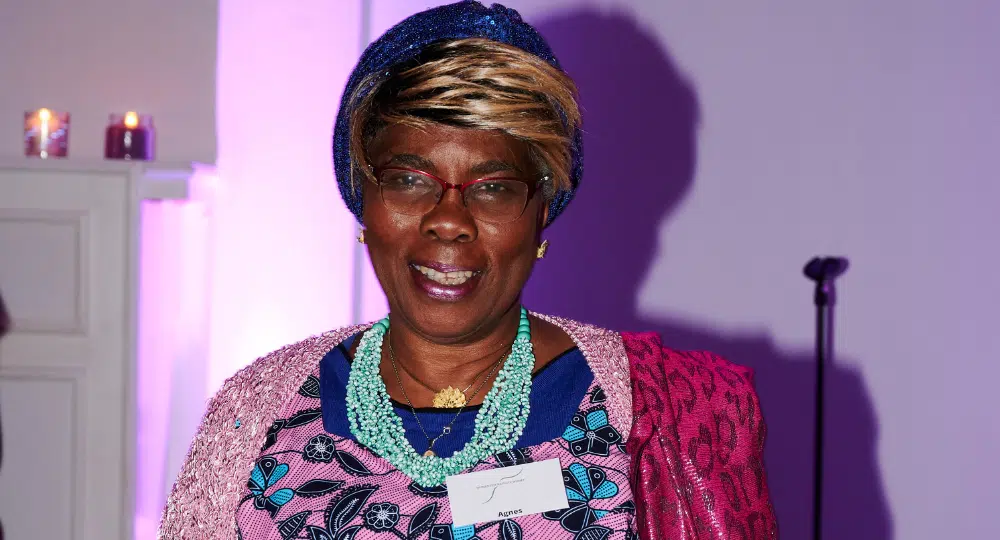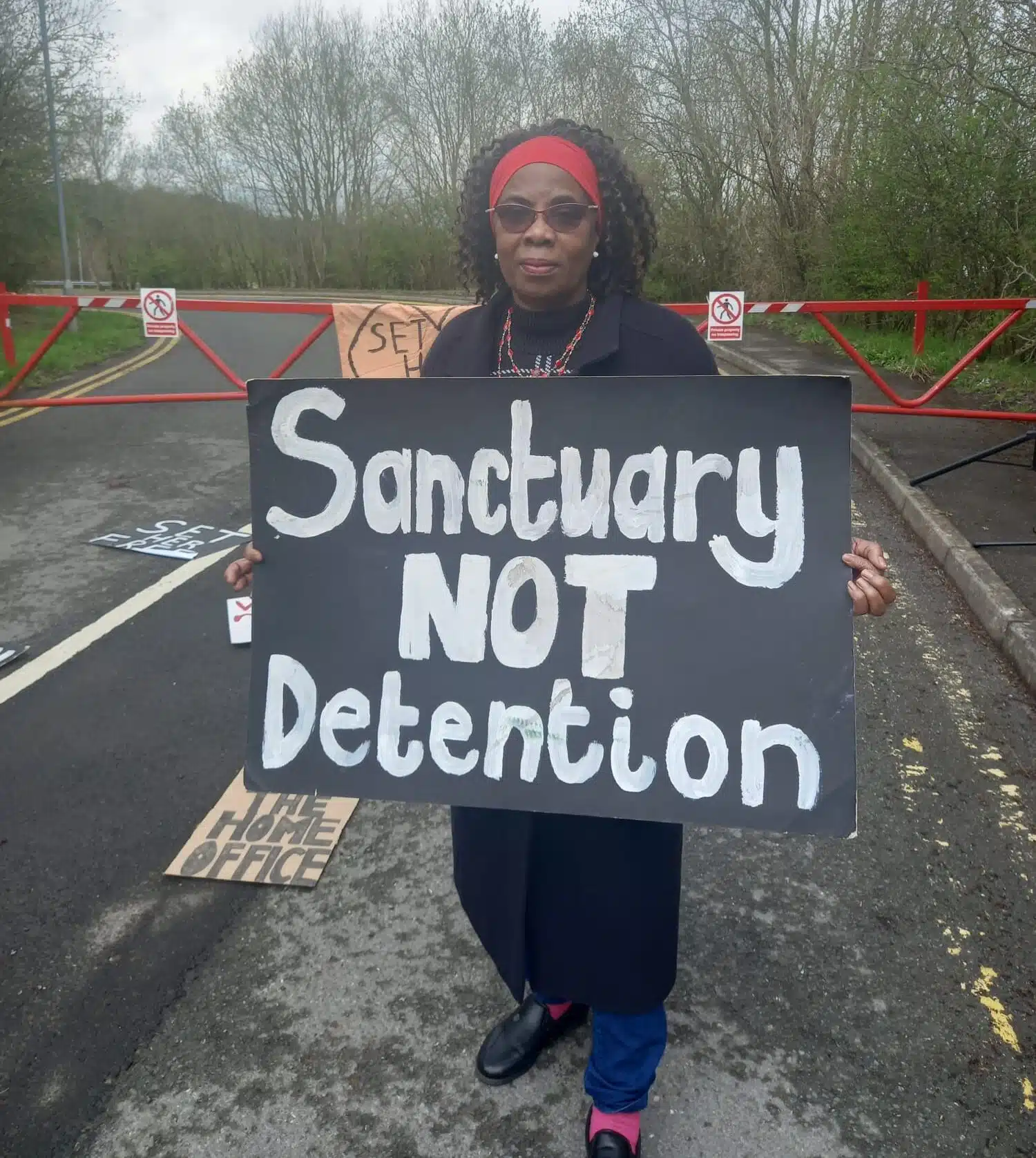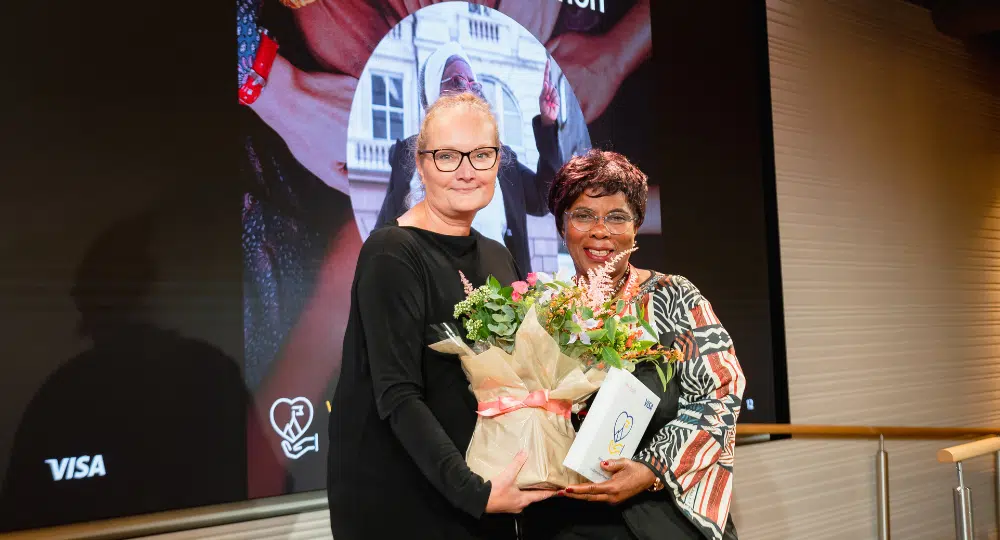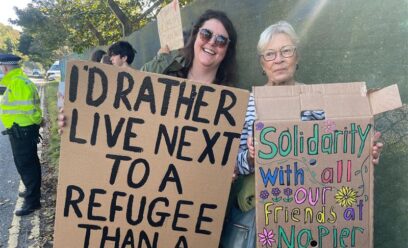Agnes’ journey from Côte d’Ivoire to Pioneer 20 Award: Saluting Our Sisters this Black History Month
Posted by IMIX on October 19, 2023This #BlackHistoryMonth, we proudly Salute Our Sisters, shining a spotlight on remarkable women uplifting their communities. Meet Agnes, who sought refuge in the UK from Côte d’Ivoire and is now honoured with the Pioneer 20 award. It recognises inspiring women and role models who give back and support their communities, even in the most challenging of circumstances.

Photo by Simon Tang.
I just had to run away from my country.
I had visited the UK before and I love this country, but I have never planned to live here because I was not in need in my country. In Côte d’Ivoire I had everything I wanted. I had a job, my husband, my big family, all the things that I loved. I never planned to seek asylum here, but because of my political status I had no choice.
I was working as personal assistant to the First Lady when civil war broke out in 2010. My friends and colleagues were being arrested and killed and I knew that I could not stay there. My life was in danger, and I just had to run. I had to escape. I made the long and dangerous journey through forests to get to Ghana, where I used my diplomatic passport to board a flight to the UK, where my children were living.
I was sick with worry and stress.
When I arrived in the UK, my first struggle was claiming asylum. My visa had expired, and as the civil war continued it became clear that I could not go back home and had to claim asylum. I had to tell the Home Office my story, the danger that I’m facing in my home country, and they told me I had to go back to Côte d’Ivoire and apply for asylum in the UK from there. But that was not safe for me, it was not an option.
The next challenge was isolation and detention. When I came to the UK, I was staying with my daughter down south in Portsmouth but when I began my process of claiming asylum, I was moved over 250 miles away to accommodation up north in Bolton. I was so far from my daughter, all alone, and stressed since my future was unclear as I waited for my application to be processed. This took a toll on my mental health. Things got worse when I was arrested one day when I went to report the Home Office, as I did every week. I was taken to Yarl’s wood, a detention centre in Bedfordshire, with no idea why. I spent more than three months in detention because there is no time limit for immigration detainees, and I was sick with worry and stress from fear of being deported.
With the help of Bail Immigration Detainees, I was released. Then came the next challenge. When you are released from detention, you do not have any support. You are destitute because you are not allowed to work, you do not have a place to live. I was destitute for five years as I waited for a decision to be made on my case.
It makes me stronger.

I chose not to stay home and to make myself busy by helping at community projects. For six years, while I waited to get my right to remain, I did a lot of volunteer jobs which helped me to improve my English and now I can express myself. I met some good people in the organisations I helped.
I want to stand for people in my situation. I want to speak out to share our struggle because people do not know much about the asylum system. A lot of people think that others come to the UK simply for benefits, but I lived here for five years with no support. I came here for protection because I was not safe in my home country. Even if someone comes here for economic reasons, every human being wants to be somewhere that is good for them.
When I was released from detention, the first person that I met was a woman from Women for Refugee Women. When I got the right to work, they gave me this opportunity to be a spokesperson.
I hope the government can have compassion for people fleeing their countries.
I was awarded the Visa Everywhere Pioneer 20 award this year, but this award is for Women for Refugee Women and for what they are doing to give women like me the opportunity to share our experiences, to speak out and spread awareness of the reality of being an asylum seeker. I thank them and Visa Everywhere, because they know our struggle, they want a fairer system, and they take the work that we do wider.
Through this award, I hope that the government will listen to what we are saying, that we need protection and support. I left everything behind, and I lost everything. I hope the government can have compassion for people fleeing their countries to come here for safety.

Photo by Ricky Darko Photography.
I want them to celebrate all women fighting the good fight.
Everyone who puts the human being at the heart of their causes. I hope they celebrate people, including Black women. By celebrating them, we also celebrate all women because our goals are aligned. We work for noble causes, advocating for what is right and just. No one gets to choose their skin colour or place of birth. We all have red blood and beating hearts. That is something we have in common so we should make the world better.
In Saluting Our Sisters, I would like to celebrate Women for Refugee Women, who are doing so much for women seeking asylum. I would also like to celebrate a lady who was helpful to me. She is from Baobab Women’s Project, who are doing a lot in Birmingham for asylum seekers.



